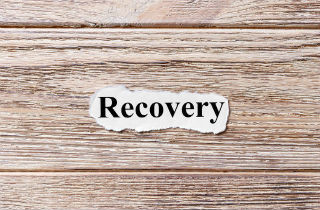If you’re a young person struggling with addiction, sober life often looks boring. You’ve overcome a monumental challenge by seeking help and going to treatment, but what now? You might say to yourself:
- “These twelve-step groups can help me stay sober, but they don’t look like much fun.”
- “I already kicked my addiction, why shouldn’t I be able to have a few drinks?”
- “You mean I’m not supposed to drink, even on my wedding day?”
Well, rest assured, you’re not alone. In fact, many young people in recovery wonder whether alcohol is off the table for good. Let’s examine what drinking in recovery looks like and see what some recovery resources have to say.
Pros of Drinking in Recovery
Positive aspects of drinking in recovery include:
Having Fun – Simply put, drinking is fun. Hanging out with your girlfriends and having a few glasses of wine makes for a great evening.
Feeling Normal – After going through treatment, many young people in sobriety feel alienated, alone, and like plain old weirdos. Drinking can be a way to engage peers and feel like a regular twenty-something again.
Celebrating – Many people use alcohol to celebrate. Whether it’s an A on a test, a promotion at work, a marriage, a big event, or simply a good day, drinking in joyous celebration is common and healthy.
Stress Relief – Life is stressful! School, work, bills, children, family, friends…it’s a lot to deal with. Sometimes, we like to kick off our heels and relax, without actually kicking off our heels.
Social Lubricant– Those who’ve struggled with addiction usually deal with anxiety. Even if they haven’t struggled with addiction, social anxiety is common. Alcohol makes it easier to meet, and strike up friendships with, new people.
Cons of Drinking in Recovery
Okay, so there ARE pros to drinking in recovery, but what about the cons? When drinking can be a problem, should you avoid it altogether? Some CONS OF DRINKING include?
Alienating Others in Recovery – Most people in recovery make healthy and strong friendships while in treatment. Drinking alienates these friends. This can lead to isolation and a f**k it attitude, which isn’t good for recovery.
Developing Alcohol Addiction – If you’re a young woman in recovery, chances are you have an addictive personality. Drinking can easily turn from something casual and fun, to a full-blown alcohol addiction.
Can Lead to Your Drug of Choice – If you’re in recovery from a specific drug, alcohol can lead back to that drug. Alcohol lowers inhibitions (one of the reasons it’s a great social lubricant) and can lead to an impulsive decision to get high.
Can Lead to Harmful Behavior– If you’re in recovery from harmful behavior (like an eating disorder, self-harm, etc.), alcohol can lead to relapsing into that behavior. Again, this is because alcohol lowers inhibitions.
Making Life Unmanageable – Just as drugs can make lives unmanageable, so can alcohol. Any intoxicating substance can lead to bad decisions, regret, and a generally negative lifestyle.
Exacerbating Mental Illness – Many youth in recovery suffer from a dual-diagnosis, or addiction coupled with mental health issues. Alcohol often triggers mental illness and sometimes leads to a full relapse of the mental health condition.
Legal Trouble – Much like mental illness, many young people in recovery have legal issues. Drinking can violate stipulations of probation or parole and is generally frowned upon by the courts.
What Recovery Resources Have to Say
1. Alcoholics Anonymous
It should come as no surprise that Alcoholics Anonymous doesn’t condone drinking in recovery. In fact, according to A.A.’s central text, the Big Book, if you’re drinking, you’re not really in recovery. And A.A. teaches that real alcoholics cannot control drinking; in their experience, controlling your drinking is not possible. A.A. doesn’t paint a boring picture, though. According to the Big Book
“…we aren’t a glum lot. If newcomers could see no joy or fun in our existence, they wouldn’t want it. We absolutely insist on enjoying life” (p. 132).
2. Narcotics Anonymous
Narcotics Anonymous also discourages drinking in recovery. NA’s central text, the Basic Text, encourages its members to “abstain from all drugs in order to recover” (p. 18). Further on, the Basic Text says,
“Before we came to NA many of us viewed alcohol separately, but we cannot afford to be confused about this. Alcohol is a drug” (p. 18).
3. SMART Recovery
SMART Recovery is an organization of self-management and recovery training for people seeking abstinence from addiction. They don’t encourage drinking in recovery, but do allow it. The program also seeks to help people find motivation to quit drinking from a logical point of view. SMART Recovery uses a seven-step model to change harmful behavior. The last step of this model is “termination,” or graduation from SMART Recovery. After an individual graduates, they’re allowed to drink as much as they want.
4. Rational Recovery
Rational Recovery also discourages drinking in recovery. Rational Recovery is a self-described
“…worldwide source of counseling, guidance, and direct instruction for self-recovery from addiction to alcohol and other drugs through planned, permanent abstinence” (Rational Recovery Website).
What Does This Mean for Me?
The bottom line is that every recovering woman has to decide for herself whether to drink alcohol or not. However, it seems like there are more reasons to abstain than to drink. Also, numerous recovery resources advise members not to drink.
Ultimately, though, the choice is yours.








